第114章 Conclusion(2)
But even in defending what remains,from the most widely accepted point of view,the validity of Mr.Browning's 'message',we concede the fact that it is most powerful when conveyed in its least explicit form;for then alone does it bear,with the full weight of his poetic utterance,on the minds to which it is addressed.His challenge to Faith and Hope imposes itself far less through any intellectual plea which he can advance in its support,than through the unconscious testimony of all creative genius to the marvel of conscious life;through the passionate affirmation of his poetic and human nature,not only of the goodness and the beauty of that life,but of its reality and its persistence.
We are told by Mr.Sharp that a new star appeared in Orion on the night on which Robert Browning died.The alleged fact is disproved by the statement of the Astronomer Royal,to whom it has been submitted;but it would have been a beautiful symbol of translation,such as affectionate fancy might gladly cherish if it were true.
It is indeed true that on that twelfth of December,a vivid centre of light and warmth was extinguished upon our earth.
The clouded brightness of many lives bears witness to the poet spirit which has departed,the glowing human presence which has passed away.
We mourn the poet whom we have lost far less than we regret the man:
for he had done his appointed work;and that work remains to us.
But the two beings were in truth inseparable.The man is always present in the poet;the poet was dominant in the man.
This fact can never be absent from our loving remembrance of him.
No just estimate of his life and character will fail to give it weight.
Index [The Index is included only as a rough guide to what is in this book.
The numbers in brackets indicate the number of index entries:
as each reference,short or long,is counted as one,the numbers may be misleading if observed too closely.]
Abel,Mr.(musician)[1]
Adams,Mrs.Sarah Flower [2]
Albemarle,Lord [1]
Alford,Lady Marian [1]
Allingham,Mr.William [1]
American appreciation of Browning [1]
Ampere,M.[1]
Ancona [1]
Anderson,Mr.(actor)[1]
Arnold,Matthew [1]
Arnould,Mr.(afterwards Sir Joseph)[1]
Ashburton,Lady [1]
Asolo [4]
Associated Societies of Edinburgh,the [1]
Athenaeum,the (review of 'Pauline')[2]
Audierne (Finisterre,Brittany)[1]
Azeglio,Massimo d'[1]
Balzac's works,the Brownings'admiration of [2]
Barrett,Miss Arabel [4]
Barrett,Miss Henrietta (afterwards Mrs.Surtees Cook [Altham])[2]
Barrett,Mr.(the poet's father-in-law)[3]
Barrett,Mr.Laurence (actor)[1]
Bartoli's 'De'Simboli trasportati al Morale'[1]
Benckhausen,Mr.(Russian consul-general)[1]
Benzon,Mr.Ernest [1]
Beranger,M.[2]
Berdoe,Dr.Edward:his paper on 'Paracelsus,the Reformer of Medicine'[1]
Biarritz [1]
Blackwood's Magazine (on 'A Blot in the 'Scutcheon')[1]
Blagden,Miss Isa [5]
Blundell,Dr.(physician)[1]
Boyle,Dean (Salisbury)[1]
Boyle,Miss (niece of the Earl of Cork)[2]
Bridell-Fox,Mrs.[3]
Bronson,Mrs.Arthur [5]
Browning,Robert (grandfather of the poet):account of his life,two marriages,and two families [1]
Browning,Mrs.(step-grandmother of the poet)[2]
Browning,Robert (father of the poet):marriage;clerk in the Bank of England;comparison between him and his son;scholarly and artistic tastes;simplicity and genuineness of his character;his strong health;Mr.Locker-Lampson's account of him;his religious opinions;renewed relations with his father's widow and second family;death [10]
Browning,Mrs.(the poet's mother):her family;her nervous temperament transmitted to her son;her death [3]
Browning,Mr.Reuben (the poet's uncle),(incl.Lord Beaconsfield's appreciation of his Latinity)[2]
Browning,Mr.William Shergold (the poet's uncle),(incl.his literary work)[2]
Browning,Miss Jemima (the poet's aunt)[1]
Browning,Miss (the poet's sister),(incl.comes to live with her brother)[16]
Browning,Robert:1812-33--the notion of his Jewish extraction disproved;his family anciently established in Dorsetshire;his carelessness as to genealogical record;account of his grandfather's life and second marriage;his father's unhappy youth;his paternal grandmother;his father's position;comparison of father and son;the father's use of grotesque rhymes in teaching him;qualities he inherited from his mother;weak points in regard to health throughout his life;characteristics in early childhood;great quickness in learning;an amusing prank;passion for his mother;fondness for animals;his collections;experiences of school life;extensive reading in his father's library;early acquaintance with old books;his early attempts in verse;spurious poems in circulation;'Incondita',the production of the twelve-year-old poet;introduction to Mr.Fox;his boyish love and lasting affection for Miss Flower;first acquaintance with Shelley's and Keats'works;his admiration for Shelley;home education under masters,his manly accomplishments;his studies chiefly literary;love of home;associates of his youth:Arnould and Domett;the Silverthornes;his choice of poetry as a profession;other possible professions considered;admiration for good acting;his father's support in his literary career;reads and digests Johnson's Dictionary by way of preparation [37]
Browning,Robert:1833-35--publication of 'Pauline';correspondence with Mr.Fox;the poet's later opinion of it;characteristics of the poem;Mr.Fox's review of it;other notices;Browning's visit to Russia;contributions to the 'Monthly Repository':
his first sonnet;the 'Trifler'(amateur periodical);a comic defence of debt;preparing to publish 'Paracelsus';friendship with Count de Ripert-Monclar;Browning's treatment of 'Paracelsus';the original Preface;John Forster's article on it in the 'Examiner'[16]